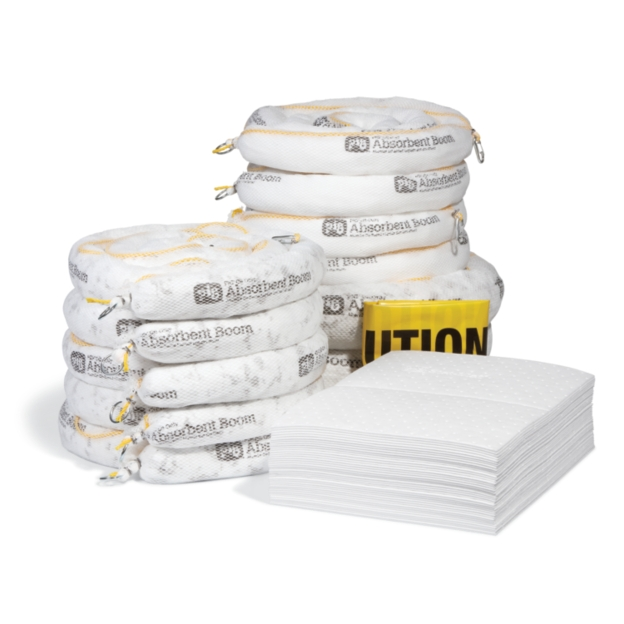
Refill for PIG® Oil-Only Spill Kit in 246-Liter Container - RFL443
Don't be caught with an empty spill kit when you need it most! Keep a refill handy to instantly replace used contents.
- Absorbs up to 147.6 L
- Ideal for KIT443 and KIT4500
- 246-liter container size
Includes:
- 2 - PIG® Oil-Only Absorbent Boom (BOM405)
- 9 - PIG® Oil-Only Absorbent Boom (BOM406)
- 40 - PIG® STAT-MAT® Absorbent Pad (MAT214)
- 10 - Polyethylene Disposal Bags (BAG201-L)
- 6 - Tamperproof Seal Label (LBL100)
Description
- Packed to refill your PIG Oil-Only Spill Kit in 65-Gallon Overpack Salvage Drum or 65-Gallon Container
- PIG Oil-Only Booms stop spreading spills; PIG Stat-Mat Pads absorb quickly
- Absorbents meet NFPA 99 standards for static decay to allow use with fuels and flammables
- Temporary disposal bags with ties help make cleanup faster
- Tamperproof seals help prevent pilfering of spill response supplies
- Only PIG Spill Kit Refills feature PIG Absorbents proven for rapid response
Specifications
| Fluid Absorbed: | Oils, Fuels, Other Oil-Based Liquids Only |
| Absorbency: | Up to 147.6 L |
| Sold as: | 1 each |
| Weight: | 22.7 kg |
| Composition: |
Booms - Co-Poly Outer Skin w/ Polypropylene Inner Skin and Filler Mats - Polypropylene |
| Includes: |
2 - PIG® Oil-Only Absorbent Boom (BOM405) 9 - PIG® Oil-Only Absorbent Boom (BOM406) 40 - PIG® STAT-MAT® Absorbent Pad (MAT214) 10 - Polyethylene Disposal Bags (BAG201-L) 6 - Tamperproof Seal Label (LBL100) 1 - Instructions
|
Additional Information
Product Data Sheet (PDS)
Safety Data Sheet (SDS) for PIG® Oil-Only Absorbents
Chemical Compatibility Guide for PIG Spill Kits
Instructions for PIG Spill Kits
Instructions for Overpack Containers
Dock Workers Rules (Safety, Health and Welfare), 1990, 78 (1)
Where there is a risk of explosion from electrical equipment....non-sparking tools shall be provided and used in such atmospheres.
National Oil Spill Disaster Contingency Plan (NOS-DCP) 8.3.2
Typical techniques involve: Application of sorbents either loose, as mats or in “sausages”. As many low viscosity chemical spills rapidly spread to cover a large surface area, these techniques are most applicable if the spread of the chemical can be confined.

